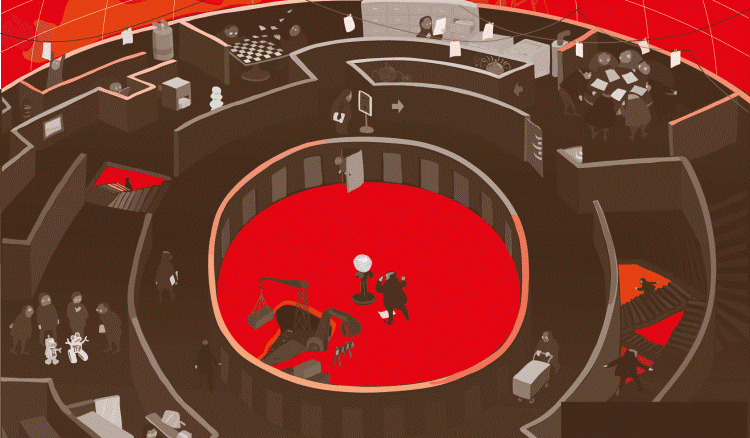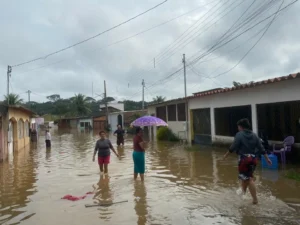By Rosa Luxemburg Foundation Brussels
The year 2017 begins with a peal of thunder. The newly elected US president Donald Trump abandons the Trans Pacific Partnership (TPP), a genuine geopolitical monster project which aimed at excluding China as main contender of the USA in the Pacific. Simultaneously it looks like the new US administration wants to renegotiate NAFTA, and the future of the TTIP negotiations are also highly uncertain. Do the US thus abandon their classical political hinterland? These big trade agreements have often been understood as substitutes for the stalled WTO negotiations. So, big surprise at the beginning of 2017 – which will be the next steps of the free trade hawks? What should we do against the next neoliberal moves?
To understand all this we need to look back to the history of global trade negotiations. They began in 1947, when 23 governments signed the General Agreement on Tariffs and Trade (GATT) to remove tariffs and other trade barriers between countries. GATT was replaced by the World Trade Organization (WTO), signed in 1994 by 123 nations. The focus of the WTO is on regulation of trade through a framework for trade agreement negotiation and a dispute resolution process. In 2001 the WTO launched the Doha Development Round, which was supposed to be a major step in the direction of developing countries listing 21 subjects in the work programme aiming to improve their trade capacities. The Doha Round is still incomplete due to the ongoing conflict between developed countries wanting to protect subsidies to domestic sectors and developing countries seeking substantiation of fair trade on agricultural products.
Due to this stalemate within the WTO, many bilateral agreements have been signed in the past decades to allow trade between nations mostly to the benefit of developed countries and to the detriment of developing countries. Additionally the past years have witnessed the negotiation and implementation of regional or even mega-regional trade agreements. Those agreements go far beyond the WTO and the Doha Round, fostering the divide between the developed North amassing riches and the developing South being plundered by its so-called trade partners.
Our series of 11 fact-leaflets explains the dangers of the current trade and investment agreements. They are focusing on topics like the 21st century trade and investment regime which is the ideologic umbrella for agreements like the Transatlantic Trade and Investment Partnership (TTIP) or the Transpacific Partnership (TPP), describing differences and similarities between the different agreements, analysing the impact of trade and investment agreements on the Global South and exposing the current state of the WTO negotiations with its failures leading to more global inequality.
Download
21ST CENTURY TRADE AGREEMENTS – AGENDA OF THE 1%

21st century trade agreements – agenda of the 1%
Author: Joachim Jachnow
Brussels, February 2017
THE WTO CHESSBOARD: QUEENS VS PEASANTS

The WTO chessboard: queens vs peasants
Author: Biraj Patnaik
Brussels, February 2017
CONFLICTING INTERESTS AND CONTROVERSIES AT THE WTO

Conflicting interests and controversies at the WTO
Author: Deborah James
Brussels, February 2017
OUTDOING THE WTO? THE NEW RULES OF TRADE IN THE MAKING

Outdoing the WTO? The New Rules of Trade in the making
Author: Shalini Bhutani
Brussels, February 2017
Download Outdoing the WTO? The New Rules of Trade in the making
PARTNERS IN CRIME? COMPARING TTIP AND TISA

Partners in crime? Comparing TTIP and TiSA
Author: Joachim Jachnow
Brussels, February 2017
SETTING THE STANDARDS: HOW TTIP IMPACTS AFRICA

Setting the standards: how TTIP impacts Africa
Author: Sylvester W. Bagooro
Brussels, February 2017
LEGAL RELATIONSHIP OF RTAS AND WTO

Legal relationship of RTAs and WTO
Author: Christiane Gerstetter
Brussels, February 2017
U.S. AND EU TRADE STRATEGY BEYOND THE DOHA ROUND

U.S. and EU Trade Strategy Beyond the Doha Round
Author: Isabel Estevez
Brussels, February 2017
A BIT BETTER? THE GLOBAL SOUTH’S RECENT BILATERAL INVESTMENT TREATIES VERSUS THE LATEST ‘INVESTMENT COURT SYSTEM’ PROPOSAL OF THE EUROPEAN COMMISSION

A BIT better? The Global South’s recent Bilateral Investment Treaties versus the latest ‘investment court system’ proposal of the European Commission
Author: Christiane Gerstetter
Brussels, February 2017
WHAT INFLUENCE WILL TISA HAVE ON INTERNATIONAL FINANCIAL MARKETS?

What influence will TiSA have on international financial markets?
Author: Constantin Groll
Brussels, February 2017
Download What influence will TiSA have on international financial markets?
CONTROLLING THE SOUTH: THE CASE OF EAST AFRICA

Controlling the South: the case of East Africa
Author: Yash Tandon
Brussels, February 2017
You would like to distribute printed copies of these leaflets at your events, in your organisation, during your mobilisation meetings, in your class?
Order copies at Rosalux Brussels





